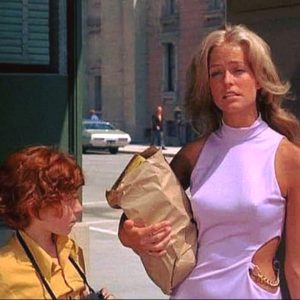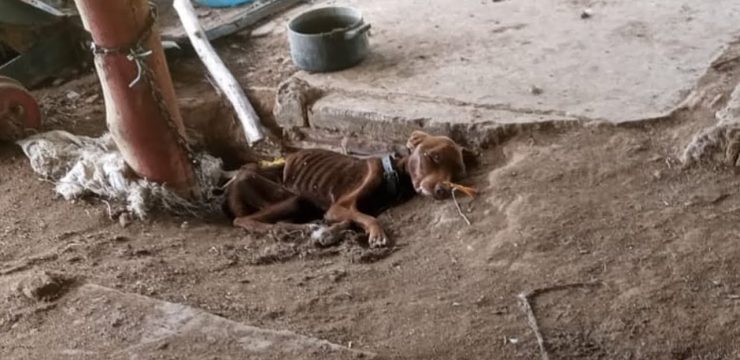The early 70s brought a unique mix of simplicity, charm, and unforgettable talent, and The Partridge Family captured it all. David Cassidy’s incredible voice and undeniable charisma made him a household name, while Susan Dey’s relatable charm won the hearts of fans everywhere. With its sharp writing, solid acting, and wholesome vibe, the show became a beloved part of television history. But even die-hard fans may have missed some fascinating details hidden in plain sight. Let’s take a nostalgic dive into the secrets and surprises that make The Partridge Family even more unforgettable!

The Partridge Family was a lighthearted sitcom about a widowed mother, Shirley, and her five children who formed a pop band and toured the country in their iconic colorful bus. Packed with catchy tunes and heartfelt moments, it became a cultural phenomenon of the 70s. Surprisingly, the Partridge family wasn’t entirely fictional. The show drew inspiration from The Cowsills, a real family music group that rose to fame in the late 1960s. Initially, producers wanted the actual Cowsills kids to star in the series, but acting wasn’t their strong suit, and they were a bit too old for the roles. As a result, the producers created their own fictional musical family.
Interestingly, Shirley Jones was originally the only cast member expected to sing. However, once producers heard David Cassidy’s demo tracks, they quickly recognized his star potential and gave him the microphone as well. The Partridge Family’s music wasn’t limited to the screen—they even received a Grammy nomination for Best New Artist in 1970, competing against real musicians like The Carpenters, who ultimately won. Still, the nomination alone was a testament to the show’s cultural impact.
Fame, however, came with its challenges, particularly for David Cassidy. His portrayal of Keith Partridge catapulted him to teen idol status, leading to a phenomenon dubbed “Cassidymania.” The intense public scrutiny became overwhelming. Reflecting on his fame in 2017, Cassidy stated, “I never went out in public after the first three months. It was too ridiculous. It’s not like that for celebrities anymore. Audiences are more sophisticated. They can see stars over and over on video, so they’re more human, more accessible now.”
Cassidy’s journey to becoming the show’s lead singer was not straightforward. Although producers knew he could sing, their primary focus was on his acting skills. Having appeared in dramas like Bonanza and Ironside, Cassidy auditioned multiple times to secure the role of Keith Partridge. After the pilot was sold, he auditioned again for record producer Wes Farrell, whose approval was crucial for Cassidy to bring the Partridges’ music to life. Fortunately, Cassidy impressed Farrell, solidifying his place as both an actor and a singer on the show.
Another notable cast member, Danny Bonaduce, who played the wisecracking middle child, had a secret talent that helped him navigate his dyslexia. Blessed with an eidetic memory, Danny could memorize not only his lines but also those of his co-stars. While this skill was impressive, it sometimes annoyed his castmates, especially when Danny would quickly jump in to correct forgotten lines.
Fame also brought unexpected experiences. Bonaduce’s sudden rise to stardom attracted countless fans, some of whom would wait outside his suburban Los Angeles home, hoping to catch a glimpse of the young star. “They’d open their shirts and have notes written on their bodies—‘DANNY, WE LOVE YOU,’” Bonaduce once shared. “I put my autograph on a lot of flesh.” By the time the show ended in 1974, the 14-year-old had amassed a $350,000 fortune. Reflecting on his unique childhood, Bonaduce said, “I didn’t play baseball, but I did ride on an elephant. I missed out on football, but I flew on the Concorde. I totally lucked out.”
Behind the scenes, David Cassidy faced financial struggles due to a restrictive contract that excluded royalties and limited his control over his name and image. Despite his immense popularity, Cassidy initially earned only $600 a week. His manager later discovered that Cassidy had signed the contract at age 19—two years shy of the legal age of 21—allowing them to renegotiate the terms. The new contract granted Cassidy a share of the profits and a salary that better reflected his star status.
Susan Dey, who played Laurie Partridge, experienced her share of challenges as well. Though producers initially considered Olivia Newton-John for the role, they ultimately chose Susan after a Screen Gems producer discovered her in New York. Despite her lack of dramatic training, Susan’s natural charm, humor, and stage presence won her the part. However, her time on the show was not without personal struggles. Susan battled an eating disorder and was highly self-critical of her performance, once describing herself as “awful” during the first season due to her inability to relax on camera.
Susan also harbored a crush on David Cassidy throughout the show’s run, but their relationship never progressed beyond friendship. After the show ended, Susan distanced herself from The Partridge Family, declining to participate in reunion events—a decision that hurt both Cassidy and Shirley Jones, who noted in her memoir that Susan was the only cast member to consistently avoid reunions.
Shirley Jones, known for her warmth and versatility as an actress, generally got along well with her co-stars, though she admitted to clashing with Dick Clark and Ray Bolger. Still, she fondly remembered working with young talents like Jodie Foster and foresaw Farrah Fawcett’s future stardom after her guest appearance on the show.
The show wasn’t without its humorous production quirks. In the pilot episode, Shirley mistakenly referred to the family as having “five” members instead of six. Another funny moment occurred during the “Skunk” episode, where a skunk sneaks onto the bus. Rather than training the animal, the production team used a wire to guide the skunk into the scene—an unconventional method that likely wouldn’t pass modern animal welfare standards.
Production shortcuts were evident elsewhere, too. The Partridge family’s home was a studio set, not a real house. In scenes where the front door was open, viewers could spot a wall just a few feet beyond it—despite no such wall existing inside. Additionally, the band’s performances often lacked essential equipment like monitors, speakers, or amps, leaving fans to marvel at the “miracle” of their sound.
Tragically, David Cassidy’s later years were marked by health issues and personal struggles. Though he publicly claimed to have quit drinking after being diagnosed with dementia in 2017, a documentary revealed that his declining health was actually the result of alcohol poisoning. In a phone conversation with an A&E producer shortly before his death, Cassidy admitted, “There is no sign of me having dementia at this stage of my life. It was completely alcohol poisoning. My life has changed dramatically.”
David Cassidy passed away from liver failure on November 21, 2017, at the age of 67. His daughter, Katie Cassidy, shared his final words on social media: “My father’s last words were ‘So much wasted time.’ This will be a daily reminder for me to share my gratitude with those I love as to never waste another minute… thank you.” Millions mourned Cassidy’s passing, including Shirley Jones, who reflected on their close relationship, believing it added authenticity to their on-screen dynamic.
The Partridge Family remains a beloved piece of television history, with its heartwarming stories, catchy music, and talented cast continuing to resonate with fans around the world. The show’s enduring legacy is a testament to the magic that can happen when talent, creativity, and a touch of serendipity come together.





